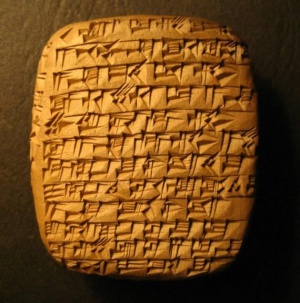Template:Assyria

Assyria
Assyria, also called the Assyrian Empire, was a Mesopotamian kingdom and empire of the Ancient Near East that existed as a state from perhaps as early as the 25th century BCE until its collapse between 612 BCE and 609 BCE; thereby spanning the periods of the Early to Middle Bronze Age through to the late Iron Age.
The Assyrians are a people who have lived in the Middle East since ancient times and today can be found all over the world. In ancient times their civilization was centered at the city of Assur (also called Ashur), the ruins of which are located in what is now northern Iraq.
- Ezekiel 31:3 "Behold, the Assyrian was a cedar in Lebanon with fair branches, and with a shadowing shroud, and of an high stature; and his top was among the thick boughs."
Alfred Edersheim associates Assyria with Babylon and the bondage of Egypt.[1]
Zechariah 10:11 And he shall pass through the sea with affliction, and shall smite the waves in the sea, and all the deeps of the river shall dry up: and the pride of Assyria shall be brought down, and the sceptre of Egypt shall depart away.